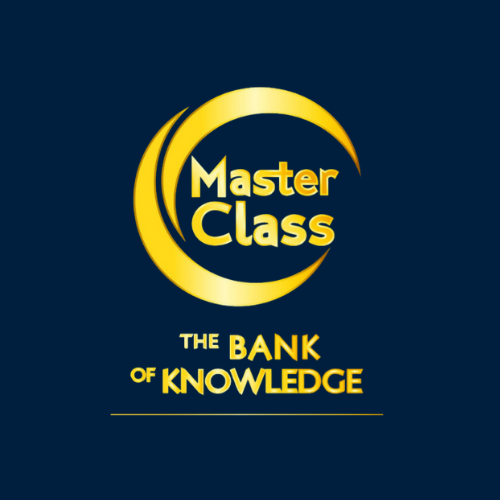Quote
"In the journey from knowledge to professionalism, awareness is the compass, learning the map, and mastery the destination."
Paul R.K Mashauri
In the realm of knowledge, there exists a subtle but significant distinction that separates amateurs from professionals. It's a journey marked by self-awareness, learning, and the pursuit of mastery. Join me on this exploration of competence, as we uncover the stages that lead to professionalism and unlock the secrets to commanding true value in the marketplace.
The Coffee Chat that Sparked a Revelation
One sunny afternoon, I found myself sharing a cup of coffee with a dear friend, Jane. She held the prestigious position of board chair at a local school and sought my insights on matters of corporate governance. As our two-hour conversation unfolded, Jane gently broached a subject that had been proposed to me by others before her.
"Paul," she began, "have you ever considered establishing a coaching program?" I couldn't help but smile because this wasn't the first time someone had suggested this path to me. You see, Jane and I had crossed paths many years ago when she visited my office seeking guidance and counsel. Back then, she was pursuing her master's in business administration (MBA) at the university. Jane knew me as someone who cherished sharing experiences and offering free guidance. However, what she didn't know was that my knowledge extended only so far; I lacked the expertise to become a professional coach.
Coaching, I explained to Jane, is more than just dispensing advice. It involves facilitating an individual's exploration of their needs, motivations, desires, skills, and thought processes, ultimately guiding them toward lasting, transformative change. To be a coach, one must possess not only knowledge but also the tools, systems, assessment models, templates, and even coaching software, all tailored to the unique context and nature of the individual being coached.
For many years, I had been advising and sharing my personal experiences, but I couldn't transition into coaching because I was what they call "consciously competent." In simpler terms, I knew what I didn't know. It was only when I made the decision to undergo coaching, training, and mentorship that I gained the necessary competence to establish the Leadership, Business & Career Mastery Program.
The Key Takeaway: Knowledge vs. Professionalism
So, why am I sharing this revelation with you? It's to emphasize that mere knowledge and the ability to offer valuable insights don't automatically confer professional status upon you. Let me illustrate this with a story from the world of soccer.
Imagine watching an interview with Jose Mourinho, the renowned football manager, after his team, Manchester United, lost a Premier League match. The sports anchor posed a tough question: "How could you lose this game?" Mourinho's reply, while somewhat brusque, held a deeper message. He retorted, "Go and ask the commentators up there!"
In his response, Mourinho subtly conveyed a crucial point: just because something appears doable from the sidelines doesn't mean it's easy to execute on the field. Professional soccer players, despite their knowledge and experience in playing the game, don't automatically qualify as professional coaches. Being proficient at something doesn't necessarily translate into professional competence.
This misconception often leads individuals to make the grave error of assuming that possessing knowledge equates to readiness for performance. This is a manifestation of a lack of professionalism. It's precisely this misconception and other related factors that cause some highly knowledgeable individuals to struggle to command value in the marketplace. I trust that you're not one of them.
The Stages of Competence: Where Do You Stand?
It's perfectly acceptable, and even commendable, to find yourself in a state of "conscious incompetence." This is an essential phase in your journey toward leadership, business, or career growth. To truly appreciate this stage, it helps to understand the four stages of competence:
- Unconscious Incompetence: In this stage, you don't know what you don't know. You operate with blissful ignorance, unaware of your own incompetence.
- Conscious Incompetence: Progressing to this stage signifies that you now know what you don't know. It's a moment of self-awareness, where you acknowledge your areas of deficiency.
- Conscious Competence: Here, you've acquired knowledge and skills, and you're fully aware of them. You consciously apply your expertise to achieve your goals.
- Unconscious Competence: This final stage is akin to being on autopilot. You've mastered your skills to such an extent that they become second nature, requiring little conscious thought.
The question now is: where do you currently find yourself among these stages? Are you conscious of your competence level, or are you still in the realm of unconscious incompetence? More importantly, do you aspire to become a professional in your field?
Cultivating Competence: Your Path to Professionalism
Moving from conscious incompetence to conscious competence is a journey that requires dedication, effort, and continuous learning. Here are some steps to guide you along this transformative path:
- Embrace Lifelong Learning: Cultivate a voracious appetite for knowledge and skills. Seek out opportunities to expand your expertise continually.
- Gain Practical Experience: Don't shy away from challenges. Embrace them as opportunities to gain invaluable experience and wisdom.
- Embody Universal Values: Commit to principles like peace, love, respect, and dignity for all. Let these values guide your actions and decisions as you strive for excellence.
- Lead with Purpose: Define your purpose and align it with your knowledge and skills. A sense of purpose enhances your ability to lead with competence.
- Inspire Others: Generously share your wisdom and expertise. Be a source of inspiration and guidance for those around you.
Questions for Self-Reflection:
- What knowledge, skills, and experiences have shaped your journey thus far? Reflect on the milestones that have contributed to your expertise.
- In which areas would you like to further develop your expertise? Identify specific areas where you can continue to learn and grow.
- Do you embody universal values in your actions and interactions? Consider how principles like peace, love, respect, and dignity guide your behavior as you pursue professional excellence.
- How can you inspire and lead with competence in your current role or situation? Explore concrete ways to exercise your intrinsic power and competence.
- What is your purpose as a leader or professional? Define your leadership purpose and how it aligns with your knowledge and skills.
Additional Resources for Your Journey:
Books:
- "Leaders Eat Last: Why Some Teams Pull Together and Others Don't" by Simon Sinek
- "The Power of Habit: Why We Do What We Do in Life and Business" by Charles Duhigg
Videos:
- TED Talk: "How Great Leaders Inspire Action" by Simon Sinek
- TED Talk: "The Puzzle of Motivation" by Dan Pink
Key Takeaways:
· Knowledge ≠ Professionalism: Understand that having knowledge and offering valuable insights doesn't automatically make you a professional. True professionalism requires more.
· From Soccer Field to Life: Just like being a great soccer player doesn't make you a professional coach, being knowledgeable in an area doesn't make you a professional in it. Recognize that competence is a journey.
· The Four Stages of Competence: Identify where you stand among the four stages: unconscious incompetence, conscious incompetence, conscious competence, and unconscious competence. Embrace conscious incompetence as a vital starting point for growth.
· Embrace Lifelong Learning: Cultivate a hunger for continuous learning and skills development. This will help you move from conscious incompetence to conscious competence.
· Embody Universal Values: Commit to principles like peace, love, respect, and dignity in your professional journey. Values guide your actions and decisions as you strive for excellence.
· Lead with Purpose: Define your purpose and align it with your knowledge and skills. Purpose enhances your ability to lead with competence.
· Inspire Others: Share your wisdom and expertise generously. Becoming a source of inspiration and guidance for others is a hallmark of true professionalism.
As you embark on your quest for competence and professionalism, these resources can provide valuable insights and guidance. Remember, it's not just about what you know; it's about how you apply that knowledge to make a real difference in the world. So, take that first step, embrace your conscious incompetence, and set yourself on the path to mastery.
Unlock your potential with MasterClass Worldwide and our global partners. From consulting to coaching, mentoring, tools, and services, we've got you covered. Subscribe now and embark on your transformative journey! Visit: www.masterclassworldwide.net]



Comments ()